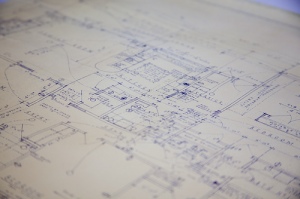A director is like an architect…
It is hard to begin to explain the kind of impact that StoneCrabs Young Directors Programme is having on all of us. After each session, we feel a mixture of exhaustion and bliss. The work itself develops at such a speed that it leaves us no time to over-intellecutalise anything.
We are learning production and directing at the same time. Our task is to produce a festival and direct the plays that will feature in it. On Tuesdays, we sit down to talk about the production, evaluating the progress we have made so far, as well as planning the next steps towards our festival and future career. We are responsible for everything: fundraising, designing, marketing, printing, programming, copyright, press, casting, venues for rehearsals and the actual production of the shows (props, sets, stage management, etc). The list goes on. No wonder we feel overwhelmed at times.
However, these skills are very important, as young directors are rarely able to afford a producer at the beginning of their careers. It is tough ground to walk, full of deadlines and constant chasing of people. Franko Figueiredo, StoneCrabs’s Artistic Director and co-founder, has been guiding us through this, managing the pressure and supporting our group at every step of the way. Now we realise how naive we were at first, when passion and instincts alone led us to want this profession. There is so much involved in it! So many little things that are not as glamorous as one may think. Nonetheless, passion and instinct are still essential ingredients to this mix.
On Saturdays, we spend all day working on the actual craft of the director. Kwong Loke – StoneCrabs’s joint Artistic Director with Franko Figueiredo – has been sharing his knowledge with us, showing the intricate art of directing. More than just having a vision, the director’s work starts with sitting down and digesting every single bit of the text, or the idea that he/she wants to work from. A thorough analysis of every part of the puzzle is absolutely necessary before the creative work can take place. Like an architect, the director must secure a very reliable structure for the actors to be able to play with. And yet, this structure needs be flexible, needs to breathe.
It is a restless job to be a director, to say the least. We have worked for weeks trying to understand exactly what it means in practical terms, and there is no straightforward answer. There are infinite ways to be a director, as every individual, relationship and moment in time is unique. Being a director is navigating these elements with an objective in mind. And when you are finally there: with your vision, actors and all other pieces of the puzzle, in that moment – which is impossible to describe – you must give up the control in order to allow something greater to happen. And only then can we understand the incredible dualism of the role of the director, which controls and frees simultaneously, creating an artificial reality that is in fact alive.
Mariana Pereira
(This blog first appeared on A Younger Theatre www.ayoungertheatre.com Dec 2013)

